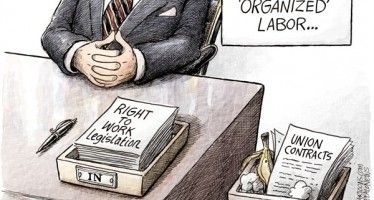Pentagon halts CA National Guard repayment demands
 Reeling from outrage over a costly bureaucratic misstep, the Pentagon has halted its efforts to force California National Guardsmen to personally repay salary bonuses that should not have approved in the first place.
Reeling from outrage over a costly bureaucratic misstep, the Pentagon has halted its efforts to force California National Guardsmen to personally repay salary bonuses that should not have approved in the first place.
As some observers concluded that only Congress could clean up the accounting mess, Defense Secretary Ash Carter took matters into his own hands. “Carter ordered the military’s money managers at the Defense Finance and Accounting Services to ‘suspend all efforts to collect reimbursements from affected California National Guard members, effective as soon as practical,'” Military Times reported. “Carter also ordered the Pentagon’s top personnel official, Undersecretary of Defense Peter Levine, to review and streamline the bureaucratic process that enables service members to individually appeal debts imposed by military accountants and seek to have those debts eliminated.”
The state Guard all but asked legislators in Washington to intervene. “Amid anger over the repayment program, the California National Guard issued a statement Sunday saying that it has been acting under the Pentagon’s orders and that it couldn’t ‘unilaterally waive these debts,'” according to NPR. “The service added that it would welcome an act by Congress forgiving the debts.”
The furor around the Defense Department’s approach, which was swiftly construed as a betrayal of trust and a black eye for America, arose from a Los Angeles Times report that found immediate traction nationwide. “It is unthinkable to me that the Department of Defense’s first reaction is to punish service members who fulfilled their end of the deal,” said VFW national commander Brian Duffy in a statement quoted by the Times. “This is how you destroy all faith in a Pentagon that is supposed to have your back.”
Years of misuse
The bogus bonuses reached back years. “The National Guard struggled to fill its ranks during the height of the wars in Iraq and Afghanistan, relying on bonuses to sign recruits and for re-enlistment,” USA Today noted. “National Guard recruiting has been rocked by scandal in recent years. In 2014, more than 800 of its soldiers were under criminal investigation for gaming a program that paid hundreds of millions in bonuses to guardsmen who signed up friends.”
California became a hotbed of misallocations. Six years ago, a former Guard auditor told the Sacramento Bee that “as much as $100 million has gone to soldiers who didn’t qualify for the incentives, including some who got tens of thousands of dollars more than the program allows. For years, the auditor and other Guard officials allege in interviews or internal documents obtained by The Bee, California’s incentives program was operated as a slush fund, doled out improperly to hundreds of soldiers with fabricated paperwork, scant supervision and little regard for the law.”
But the California Guardsmen targeted by the Pentagon were largely innocent. “Nearly all of the soldiers took the bonuses in good faith and were unaware of the misspending until notices arrived in the mail years later,” the New York Times reported. “Some had to repay more than $20,000 and a few more than $40,000. Many had wages garnished and racked up penalties and other debt trying to pay back the bonuses.”
An unclear path
Pending a Pentagon review, other state programs similar to California’s could come under more scrutiny, although questions remain as to how fraudulent bonuses might be adjudicated as a whole. “It’s unclear how the Pentagon’s adjusted policy might apply to veterans in states other than California,” NPR noted. High-ranking officials have cautioned that efforts to address the problem on the Hill already ran aground. “Maj. Gen. Matthew Beevers, the No. 2 officer in the California Army National Guard, said Monday that Guard leaders attempted to resolve the problem through Congress two years ago, and the effort stalled,” according to the Washington Post. “Beevers said that an effort to pass legislation that would have provided relief to affected soldiers did not find favor with the Congressional Budget Office because it would have added spending at a time when the U.S. government was attempting to cut back.”
Related Articles
Filner signals he’ll block further reform in San Diego
Dec. 11, 2012 By Chris Reed SAN DIEGO — As I wrote for CalWatchdog just after last month’s election, there
Don't tell Mom the babysitter's unionized
If Assemblyman Tom Ammiano has his way, your babysitter soon could join a union and cost you a lot more.
VIDEO: A CEO’s advice for Gov. Jerry Brown
Innovation is at the core of California’s identity. Now the Golden State needs to embrace innovation to build a better




